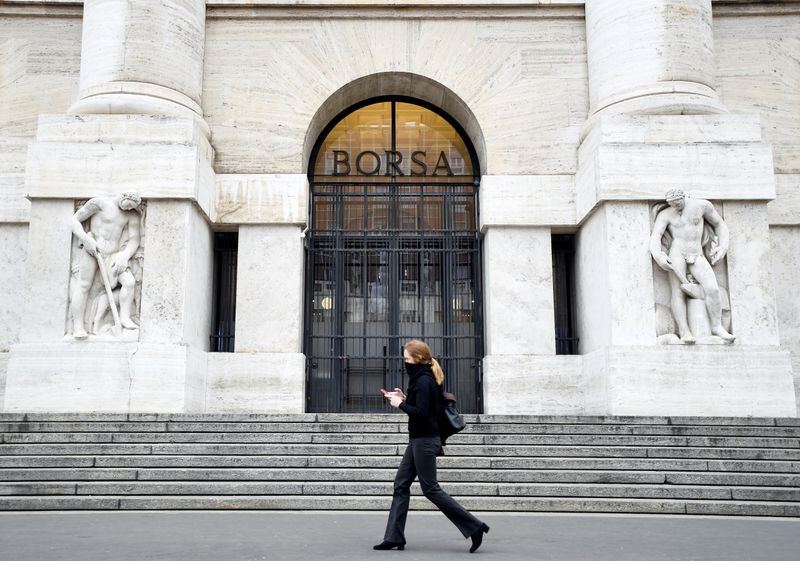European stock markets closed higher on Friday, defying a weakening euro which hit a two-year low against the US dollar. The positive market sentiment bucked broader economic anxieties, driven by strong US economic data and ongoing geopolitical tensions.
The FTSE MIB in Milan closed up 0.6% at 33,494.83, with the Mid-Cap index rising 0.6% to 46,830.47, the Small-Cap gaining 0.1% to 26,984.76, and the Italy Growth index slightly down 0.1% at 7,728.95. Other major European indices also saw gains, with London's FTSE 100 up 1.4%, Paris' CAC 40 up 0.5%, and Frankfurt's DAX 40 up 0.8%.
This positive performance comes amidst a backdrop of a weakening euro, trading at a two-year low against the US dollar at $1.0395, down from $1.0509 the previous day. The pound also weakened, trading at $1.2509 compared to $1.2614 on Thursday. This currency weakness, coupled with the ongoing conflict in Ukraine, significantly impacted commodity markets.
Axel Rudolph, senior technical analyst at IG, commented that the weaker euro and pound contributed to gold reaching all-time highs in those currencies. Gold saw a near 5% weekly gain in US dollar terms, its best performance in eight months, driven by safe-haven investment due to the escalating geopolitical situation. Silver, while underperforming gold, still closed up 1.5%. Oil prices also benefited from the geopolitical instability, experiencing a weekly gain of over 5%.
The strong performance of the US private sector, reflected in a composite PMI of 55.3 points â the highest since 2022 â according to S&P Global data, bolstered the US dollar and contributed to the positive sentiment in some European markets. While the US services sector showed strong expansion (PMI at 57.0 points), the manufacturing sector remained in contraction (PMI at 48.8 points).
Within the Italian market, Brunello Cucinelli led the FTSE MIB, closing up 3.8%, followed by DiaSorin at 3.02%. Recordati, Stellantis, and Terna also performed well, with gains between 2.8% and 2.9%. However, the banking sector underperformed, with UniCredit down 1.9% and other major banks experiencing declines between 0.9% and 1.5%, likely influenced by geopolitical concerns, the weak euro, and softening Eurozone economic activity.
Mixed performances were seen across other segments of the Italian market. OVS, after a significant drop the previous day, closed up 3.8%, while Reply experienced a 3% decline despite an upward target price revision from Berenberg. MFE-MediaForEurope saw profit-taking, with share prices falling. The Small-Cap index saw varied results, with PLC soaring 19% following the announcement of a new contract, while doValue dropped 16% after completing a significant acquisition. Several other companies also reported strong financial results and notable contract wins, offsetting the declines in others.
In New York, the Dow Jones gained 0.5%, while the Nasdaq dipped 0.2%, and the S&P 500 saw fractional gains.
The macroeconomic calendar for Monday includes producer price data from Spain, German business sentiment data, French yield auctions, and US T-Note auctions. Solutions Capital Management SIM is also scheduled to release its interim results.
The contrasting performance of the European markets and the weakening euro highlight the complex interplay of global economic factors and geopolitical tensions impacting the financial landscape. Further analysis is needed to fully understand the long-term implications of these trends.
Article
Business

Euro Plunges to Two-Year Low as European Stocks Rise

